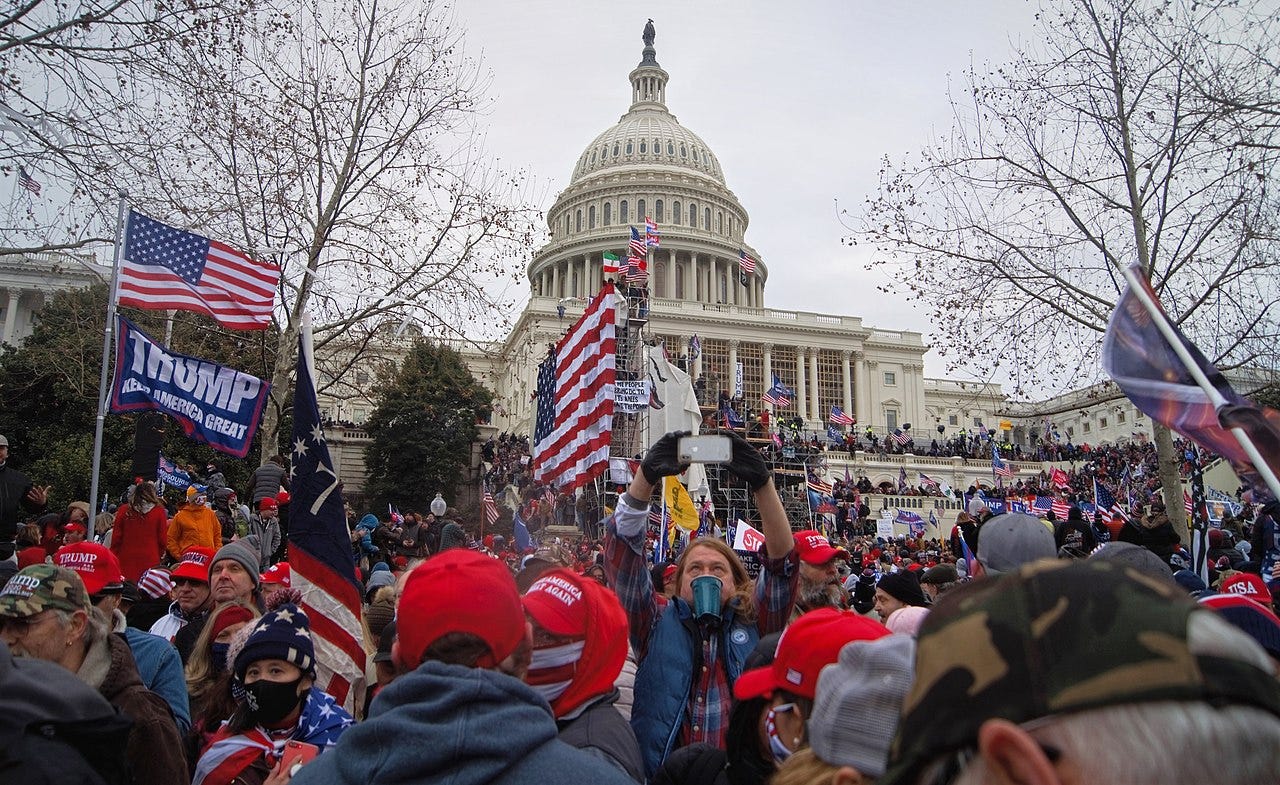End of an Era
Der Weltgeist in Bronzer

In an interview in 2018, Henry Kissinger suggested that Donald Trump is a Hegelian hero like Napoleon who heralded the end of an era.
Henry Kissinger once remarked that Donald Trump might be “one of those figures in history who appears from time to time to mark the end of an era and to force it to give up its pretences.” Kissinger’s remark invoked Georg Wilhelm Friedrich Hegel’s idea that certain individuals play a heroic role in moving history forward by exploiting weaknesses in social and political orders that no longer make sense. Hegel famously described Napoleon riding out before the Battle of Jena in 1806 as a living embodiment of the historical forces1 bringing down a feudal system weighed down by its own contradictions. Napoleon was in this sense the herald of modernity; it’s sometimes said he was “the world spirit on horseback.” Kissinger’s suggestion was that Trump is the Napoleon of our era; he is the world spirit in bronzer.
You don’t have to be familiar with Hegelian dialectics to see what Kissinger means. His point was that the liberal order we’ve been living under no longer has the broad appeal it used to. Building and defending that order doesn’t provide people with the sense of purpose and meaning that it used to, and the institutions and norms we pay lip service to don’t command the respect they once did. The events that gave rise to those institutions and norms—the Great Depression, World War II, the Civil Rights movement, the Cold War, and so on—are receding in our memories. While many of those institutions and norms are still valuable in some ways, they don’t make the same sense they did when they were created. The liberal order is anachronism in the same way that hereditary aristocracy was in the 19th century.
What Trump has done—and some amoral adventurer eventually would have done—is demonstrate he can disregard the institutions and norms we take for granted with impunity. He has been able to exploit the fault lines in a system that is no longer vital in service of his own interests. Indeed, many people are happy to see him thumb his nose at rules and constraints that no longer seem to make sense to them. While in the short term we will probably regret losing the rules Trump is flouting—Hegel saw history as a “slaughter-bench”—we can’t simply return to the old order now that Trump has shown it can be safely ignored. Democrats may at the moment be fighting a battle they will ultimately lose, even if they do win more elections; as Josh Marshall says, they are “institutionalists in an age of mistrust.” Trump in this view is not merely a temporary aberration, but an agent of inevitable historical change. He is the unwitting harbinger of a new era.
This is not meant as praise; Trump is a blight who serves only his own interests. He may be a great man in some historical sense, but he certainly isn’t a good man in any sense. We may be ultimately better off moving on from the old liberal order, but that doesn’t make Trump any less reprehensible. Nor does it mean that he is unstoppable or that we shouldn’t do everything we can to oppose him. The liberal order we’ve been living under may indeed be dying, but we need to stop the forces he set in motion if we are to develop a humane new order to replace the one we’re losing; Napoleon had to be defeated for the modern state to arise. I’m afraid I don’t share Hegel’s conviction that history is rational and necessarily moves in the direction of human freedom. I believe that if we want a better world, we’ll need to build one.
Happy Thanksgiving! I am thankful for everyone who has supported and encouraged my writing, as well as for everyone who works to make the world a better place. If you enjoyed this post, I’d appreciate it if you’d share it with others using the button below.




Terrific post. You have allowed me to see Trump in a whole new light. I'm not very happy about this new perspective, but I do feel smarter.
Overnight, I can't stop thinking about this Hegelian perspective. Why I don't get is, what are the internal contradictions of liberal democracy that should now lead to its unraveling? Liberal democracy still seems mighty fine to me.